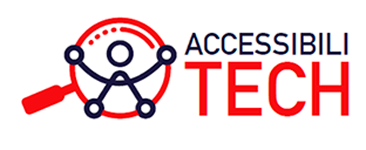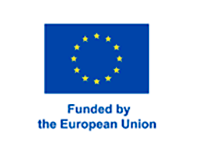Capella Assessments: Building Competence Through Personalized Academic Pathways
Capella University has set a new benchmark in higher education with its innovative approach to assessments. Moving beyond traditional tests and exams, Capella Assessments focus on real-world applications, personalized learning, and demonstrable mastery of competencies Capella Assessment. This forward-thinking strategy not only aligns with modern educational trends but also caters specifically to adult learners who seek flexibility, relevance, and tangible outcomes from their academic experience.
In this article, we’ll explore how Capella’s assessment model supports personalized education, how it contributes to meaningful skill development, and why it’s considered a blueprint for future-ready academic programs.
A Shift from Grades to Competence
The core philosophy behind Capella Assessments is competency-based education (CBE). In traditional academic models, students earn grades based on how well they perform on exams, term papers, and participation. Capella’s CBE model, however, asks a more practical question: Can the student demonstrate mastery of specific, career-relevant skills?
Every course at Capella is structured around well-defined competencies. These competencies are developed in collaboration with industry experts to ensure alignment with current workforce demands. Students are assessed on their ability to apply what they’ve learned to authentic, real-world problems, rather than how well they memorize lecture notes.
This shift from grades to competence results in a more meaningful academic experience, where assessments measure what truly matters in professional settings.
The Structure of Capella Assessments
Capella Assessments follow a standardized but flexible format that ensures quality and relevance across all disciplines. Whether a learner is pursuing a degree in education, business, information technology, or healthcare, the structure remains learner-centric and outcome-oriented.
Components of a Typical Capella Assessment:
- Scenario-Based Tasks
Assessments are designed around realistic professional situations FPX Class Help. For example, a business student might be asked to craft a market entry strategy for a startup, while a public health learner could be required to design a community outreach program.
- Rubrics and Competency Mapping
Each assessment is evaluated using a clear rubric that outlines expectations for each competency. These rubrics not only guide students but also bring transparency to the grading process.
- Feedback and Resubmission
One of the defining features of Capella Assessments is the opportunity to revise and resubmit work based on faculty feedback. Rather than being penalized for initial misunderstandings, students are encouraged to refine their thinking and improve performance—just as professionals do in the workplace.
- Real-World Deliverables
Assessments often culminate in deliverables such as project proposals, strategic plans, analytical reports, or multimedia presentations. These artifacts can be included in a professional portfolio, showcasing a learner’s abilities to future employers.
Personalized Pace with FlexPath
Capella offers its students two learning formats: GuidedPath (structured, faculty-led with deadlines) and FlexPath, a self-paced model built around assessments. FlexPath is particularly popular with working adults because it allows them to move at their own speed through the material—completing assessments as soon as they’re ready.
Students in FlexPath don’t need to wait for weekly class discussions or fixed schedules. If they have prior experience or existing knowledge, they can advance quickly. Conversely, if they need more time to master a concept, they’re not penalized. This flexibility promotes genuine understanding rather than rushed performance.
Because assessments are the main way progress is measured in FlexPath, students are empowered to focus their energy on creating thoughtful, high-quality work rather than cramming for exams.
Skills Development Through Assessment
Capella Assessments are intentionally designed to support both academic and professional skill development nurs fpx 4000 assessment 4. While students work to demonstrate subject-specific knowledge, they also strengthen transferable skills such as:
- Critical thinking and analysis
- Written and oral communication
- Problem-solving
- Collaboration (in team-based assignments)
- Ethical decision-making
- Time and project management
These soft and hard skills are often woven together in each assessment, resulting in a multidimensional learning experience that reflects the complexity of real-world challenges.
For instance, a nursing student might be tasked with preparing a comprehensive care plan that not only requires clinical knowledge, but also clear documentation, cultural sensitivity, and ethical judgment. This type of integrated assignment is far more valuable than isolated multiple-choice exams.
Support Systems for Assessment Success
Capella does not leave students to navigate assessments on their own. The university offers a range of resources to help learners succeed:
- Academic coaches provide individualized guidance on time management and study strategies.
- Tutoring services help students refine their writing, research, and subject-specific knowledge.
- Faculty feedback is detailed, constructive nurs fpx 4015 assessment 5, and designed to facilitate improvement.
- Library and research databases give students access to scholarly materials needed to complete their assessments.
These support systems ensure that assessments become a productive learning experience rather than a high-stress hurdle.
Career Relevance and Professional Value
Capella’s emphasis on assessment-based learning ensures that students graduate with more than just a diploma—they leave with a portfolio of work that demonstrates their readiness for professional roles.
In fields like business, IT, and healthcare, this practical evidence of skill mastery is highly attractive to employers. Students can showcase their assessment work in job interviews, performance reviews, or even for promotion applications.
Additionally, Capella’s integration of certification-aligned competencies in some programs allows students to meet industry benchmarks as part of their degree work.
A New Paradigm for Academic Evaluation
Capella Assessments represent a break from the conventional academic mold. They embrace the idea that education should be measured by what a student can do, not simply by what they know. This makes Capella’s approach particularly effective for adult learners, career changers, and professionals seeking to upskill in a flexible, relevant, and supportive environment.
Conclusion
Capella University’s assessment model is more than just a method of grading—it’s a framework for developing real, usable competence. Through personalized learning, real-world assignments, and a focus on continuous nurs fpx 4905 assessment 1, Capella Assessments give students the tools to excel not only in academics but in their careers.
By turning assessments into opportunities for growth and practical application, Capella sets a high standard for what modern education can and should be.
More Articles:
Capella Assessments: A New Standard in Online Higher Education
Capella Assessments: The Future of Skill-Based Academic Evaluation
Capella Assessments: Empowering Adult Learners Through Competency


